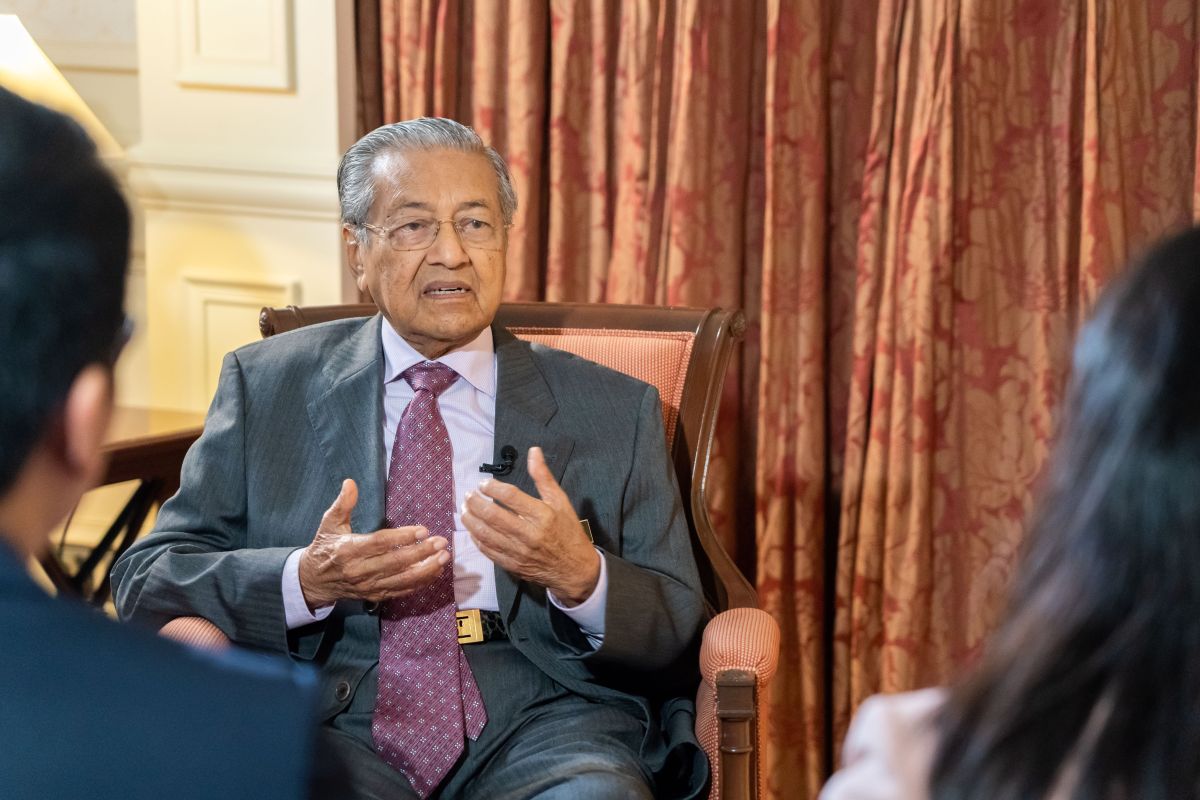India, Malaysia resolve to counter terrorism at first security dialogue
India and Malaysia on Tuesday resolved to deepen cooperation in counter terrorism and deradicalisation, cyber security, defence industry, and maritime security.
Mahathir, the world’s oldest head of government, presented his resignation on Monday, later accepted by King Abdullah Pahang, on condition that he continue as Interim Prime Minister until a new government is formed.

Malaysian Prime Minister Mahathir Mohamad (Photo: IANS)
A day after Malaysian Prime Minister Mahathir Mohamad submitted a letter of resignation to Malaysia’s king, the government party rejected his resignation, urging him to continue leading it and the country, now shrouded in political uncertainty.
During an extraordinary meeting held on Monday night, the Malaysian United Indigenous Party (Bersatu) unanimously rejected the 94-year-old Prime Minister’s decision.
Advertisement
Mahathir, the world’s oldest head of government, presented his resignation on Monday, later accepted by King Abdullah Pahang, on condition that he continue as Interim Prime Minister until a new government is formed.
Advertisement
The move comes after Malaysia’s ruling coalition has been having surprise weekend talks with opposition groups on forming a new government. “The letter has been sent to His Royal Highness the King at 1 pm,” Mahathir’s office said in a statement.
Bersatu and 11 Popular Justice Party deputies announced their departure from the coalition, although they reaffirmed their confidence in Mahathir as Malaysia’s political leader.
After the meeting, Marzuki Yahya, Bersatu Secretary-General said, “We remain intact and prepared to build a party to face the difficulties”.
Lim Guan Eng, Finance Minister and coalition member said in a statement that the chief executive himself had informed him he had no intention of forming a coalition with Barisan, which suffered a historic defeat in the last elections.
A future government will need at least 112 of 222 parliament votes.
In a surprise victory, Mahathir had ousted then-prime minister Najib Razak, who has been linked to a multibillion-dollar scandal involving a government fund. The power tussle between old rivals 94-year-old Mahathir and 72-year-old Anwar has shaped Malaysian politics for decades, despite their unusual alliance to win 2018 elections based on a promise that Mahathir would one day cede power to Anwar.
Mahathir was prime minister from 1981 to 2003 and was part of the long-ruling party Barisan Nasional (BN). Anwar was his deputy but the relationship soured when Anwar was sacked in 1998 after a leadership dispute.
The history seems to be repeating itself after the recent events which still leaves the question of who will be the next prime minister or if new elections will be called.
Advertisement